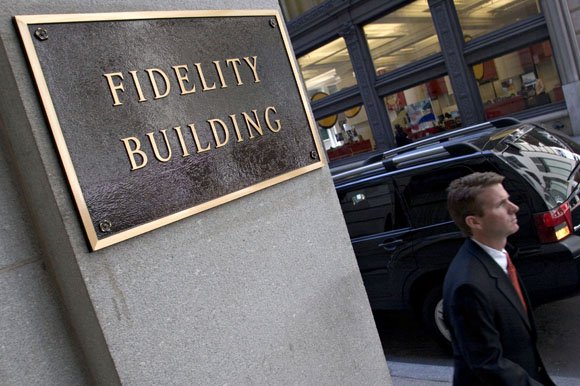Fidelity Investments named Jeffrey S. Feingold to run the $17.4 billion Magellan Fund, replacing Harry Lange who oversaw a two-thirds decline in assets in what was once the largest U.S. mutual fund.
Magellan trailed 85 percent of rival funds over the past five years and shrank in size by $33 billion during Lange's almost six-year tenure, according to data compiled by Bloomberg. Feingold, 40, manages the $1.04 billion Fidelity Trend Fund, which beat 84 percent of competing funds over the past year.
“His performance was deeply disappointing,” John Bonnanzio, editor of Fidelity Insight, a newsletter based in Wellesley, Massachusetts, said today of Lange. Bonnanzio said he was optimistic about the change in management, adding that Feingold “has a good record.”
Feingold, who graduated from Brown University in Providence, Rhode Island, and holds a master's degree from Harvard University in Cambridge, Massachusetts, joined Fidelity as an equity analyst in 1997.
Lange, 59, a 24-year veteran with the firm, will stay at Fidelity and is exploring other opportunities within the company, Vincent Loporchio, a spokesman for Boston-based Fidelity, which manages $1.6 trillion, said today in a telephone interview.
“The fund has generally underperformed its benchmark and, that said, we're confident Jeff Feingold can bring Magellan the opportunity to provide competitive long-term performance,” Loporchio said.
Financial Stocks
Magellan, originally managed by Ned Johnson, Fidelity's chairman and chief executive officer, rose to prominence under Peter Lynch in the 1980s. Lynch guided the fund to gains of 29 percent a year from 1977 to 1990, compared with 15 percent annual returns for the Standard & Poor's 500 Index. The fund closed to new investors in 1998 and its assets peaked at $110 billion in 2000.
Fidelity failed to reverse withdrawals when it reopened the fund under Lange in 2008 after assets fell to about $40 billion.
Magellan's performance suffered in 2008 when Lange bought financial stocks including Wachovia Corp. and insurer American International Group Inc., Christopher Davis, an analyst with Chicago-based Morningstar Inc., wrote in a February report. Lange was “eventually right, but most of his picks, such as AIG and Wachovia, didn't survive the financial crisis,” Davis wrote.
Volatile Performance
Wachovia, based in Charlotte, North Carolina, was taken over by Wells Fargo & Co. in 2008 as it was on the verge of collapse. AIG was rescued the same year by the U.S. government, which received warrants for 80 percent of the New York company's equity.
Magellan lost 49 percent in 2008. After it bounced back in 2009, returning 41 percent, the fund trailed the S&P 500 in 2010, and again so far this year. Magellan suffered last year from its holding in Helsinki-based mobile-phone maker Nokia OYJ (NOK1V), Lange wrote in a May regulatory filing.
Magellan was also volatile under Lange. Data compiled by Bloomberg show the fund trailed more than 90 percent of competing funds that invest in large-company stocks in 2006 and 2008, while beating more than 90 percent of peers in 2007 and 2009.
Magellan's largest holdings include Apple Inc. (AAPL), up 44 percent in the past year, as well as Corning Inc. (GLW), which lost 22 percent during the same period.
Passive Investing Trend
As it suffered from comparatively poor returns, Magellan also struggled against a broad trend among investors favoring passive investing over active stock picking. Through August, index mutual funds that invest in stocks gathered $96.3 billion in deposits since 2008, while actively managed stock funds lost $290 billion to withdrawals, according to Morningstar. Equity exchange-traded funds, also based mostly on indexes, have attracted $358 billion from 2008 through July, according to data from the Investment Company Institute, a Washington-based trade group.
The Vanguard Total Stock Market Index Fund surpassed
Capital Group Cos.' Growth Fund of America as the largest equity mutual fund with $139 billion at the end of August, Bloomberg data show.
--Bloomberg News--







